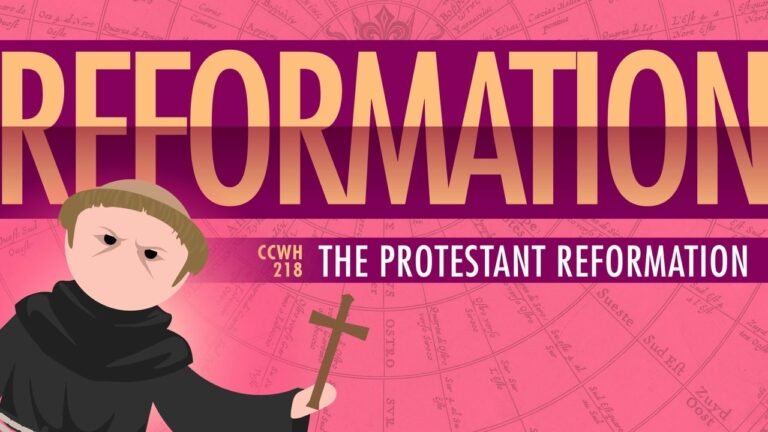Lessons from the Parable of the Unjust Servant
In the timeless tale of the Parable of the Unjust Servant, we delve into a story that challenges our understanding of mercy, forgiveness, and accountability. This thought-provoking narrative illustrates the complexities of human nature and the consequences of our actions, urging readers to reflect on their own relationships and moral choices. As we explore the depths of this parable, we uncover lessons that resonate across generations, reminding us of the delicate balance between justice and compassion in our everyday lives.
What does the parable of the unfair servant teach?
The Parable of the Unforgiving Servant vividly illustrates the importance of mercy and the consequences of failing to extend it. In this story, a servant who is forgiven an enormous debt by his master shows a shocking lack of compassion when he encounters another servant with a minor debt. Instead of mirroring the grace he received, he chooses to demand repayment harshly, leading to dire consequences. This narrative serves as a powerful reminder of the obligation to forgive others, reflecting the grace we receive and highlighting the moral imperative to embody kindness and understanding in our interactions.
What is the key lesson from the Parable of the Unjust Steward?
The Parable of the Unjust Steward serves as a powerful reminder of the responsibility that comes with worldly possessions. Jesus illustrates that while we may possess various goods and resources, we are not their true owners; we are entrusted stewards. This distinction emphasizes the importance of mindful stewardship, urging us to consider how we manage what has been given to us.
In this parable, the unjust steward’s actions highlight the consequences of misusing resources. Instead of squandering his master’s wealth, he was called to act wisely and prudently. This story challenges us to reflect on our own lives and the choices we make regarding our material possessions, prompting us to use our resources not just for personal gain, but for the benefit of others and the advancement of the kingdom of God.
Ultimately, the lesson teaches us that our stewardship is a divine responsibility. By recognizing that everything we have comes from God, we are encouraged to act with integrity and purpose. This parable invites us to align our actions with our values and to be faithful stewards of the gifts we have received, ensuring that our lives reflect gratitude and responsibility toward the one who provides.
What is the meaning of the parable of the unworthy servants?
The parable of the unworthy servants serves as a profound reminder of our inherent humility in the eyes of God. It emphasizes that our worthiness does not stem from our actions or achievements, but rather from God’s unconditional love for us. In recognizing ourselves as unprofitable servants, we understand that it is not our merits that define our relationship with the divine, but rather the grace bestowed upon us. This perspective encourages gratitude and servitude, urging us to respond to God’s love with humility and a commitment to live according to His will.
Navigating Integrity in Unjust Times
In a world increasingly fraught with challenges, maintaining integrity can feel like an uphill battle. Yet, it is precisely in these unjust times that the strength of our character is truly tested. Upholding honesty and ethical principles not only fosters trust but also serves as a beacon for others, illuminating a path toward collective resilience. By standing firm in our values, we can inspire change and create a ripple effect that encourages those around us to do the same, transforming our communities into havens of accountability and transparency.
While external pressures may tempt us to compromise our principles, it is essential to remember that integrity is a choice we make each day. Embracing this commitment empowers us to rise above the chaos, enabling us to navigate difficult situations with grace and purpose. By cultivating a culture of integrity, we equip ourselves and others with the tools necessary to confront adversity head-on, fostering a sense of unity and hope that can counterbalance the injustices we face. In doing so, we not only enhance our own lives but also contribute to a more just and equitable society for all.
Wisdom from a Dishonest Steward
In a world that often values cunning over integrity, the parable of the dishonest steward offers a profound lesson on the complexities of human nature and resourcefulness. This steward, faced with impending dismissal, cleverly navigates his predicament by securing his future through shrewd dealings with his master’s debtors. Rather than succumbing to despair, he demonstrates an astute understanding of relationships and leverage, showing that even in dishonest actions, there can be an underlying wisdom.
The steward’s actions prompt us to reflect on the importance of strategic thinking and adaptability in times of crisis. While his methods may be morally questionable, the essence of his approach highlights a determinante life skill: the ability to assess a situation and act decisively. This story encourages us to look beyond the surface of ethical dilemmas and consider the underlying strategies that can lead to favorable outcomes, emphasizing that wisdom can sometimes emerge from the most unexpected scenarios.
Ultimately, the tale serves as a reminder that we can learn valuable lessons from those who navigate life’s challenges with unorthodox methods. It urges us to embrace a mindset of innovation and resourcefulness, even when faced with difficult choices. By examining the steward’s cunning, we are reminded that wisdom is not solely defined by moral clarity but can also be found in the ability to think critically and act with foresight, regardless of the circumstances.
Ethical Choices in a Compromised World
In a world often overshadowed by moral ambiguities, the importance of making ethical choices becomes increasingly vital. Each decision we face has the potential to create ripples that extend far beyond our immediate surroundings, influencing communities and ecosystems alike. By consciously prioritizing integrity over convenience, we can foster a culture of responsibility that encourages sustainable practices and compassionate interactions. This commitment not only enhances our personal values but also contributes to a collective effort toward a more just and equitable society.
Navigating through the complexities of modern life requires a vigilant awareness of the ethical implications behind our choices. From consumer habits to corporate policies, the repercussions of our actions can lead to significant social and environmental impacts. By engaging in thoughtful reflection and prioritizing transparency, we can align our decisions with our values, ultimately paving the way for a future where ethical considerations are at the forefront of innovation and progress. Together, we can transform challenges into opportunities, championing a world where ethical choices are not just aspirational but a standard practice.
Insights on Accountability and Forgiveness
Accountability and forgiveness are two powerful pillars that shape our relationships and personal growth. Embracing accountability allows us to recognize our actions and their impact on others, fostering a culture of trust and responsibility. It empowers individuals to learn from their mistakes, promoting resilience and self-improvement. On the other hand, forgiveness serves as a liberating force, enabling us to release the burdens of resentment and anger. By practicing forgiveness, we not only heal ourselves but also pave the way for deeper connections and understanding. Together, these concepts create a harmonious balance that encourages both personal development and stronger, more empathetic relationships.
Transforming Lessons into Actionable Change
In today’s fast-paced world, the ability to transform lessons into actionable change is more determinante than ever. Organizations and individuals alike must embrace the insights gained from past experiences to drive meaningful progress. By reflecting on successes and setbacks, we can identify patterns that inform our decision-making processes, ensuring that every lesson learned contributes to a more effective future.
Implementing change requires a strategic approach that fosters collaboration and innovation. By encouraging open dialogue and diverse perspectives, teams can harness collective wisdom to tackle challenges head-on. This collaborative spirit not only empowers individuals to take ownership of their roles but also cultivates a culture of continuous improvement, where every team member feels valued and motivated to contribute to the organization’s goals.
Ultimately, the journey from lessons learned to tangible change hinges on a commitment to action. Setting clear objectives and measurable outcomes allows us to track progress and celebrate milestones, reinforcing the importance of our collective efforts. By transforming knowledge into practice, we pave the way for sustainable growth and a brighter future, ensuring that the lessons of today become the successes of tomorrow.
The parable of the unjust servant serves as a powerful reminder of the complexities of mercy, accountability, and the choices we make in our lives. It challenges us to reflect on our own actions and the impact they have on others, urging a balance between justice and compassion. Ultimately, this timeless narrative invites us to consider how we can embody fairness and integrity in a world that often blurs these lines, inspiring personal growth and a deeper understanding of our shared humanity.







